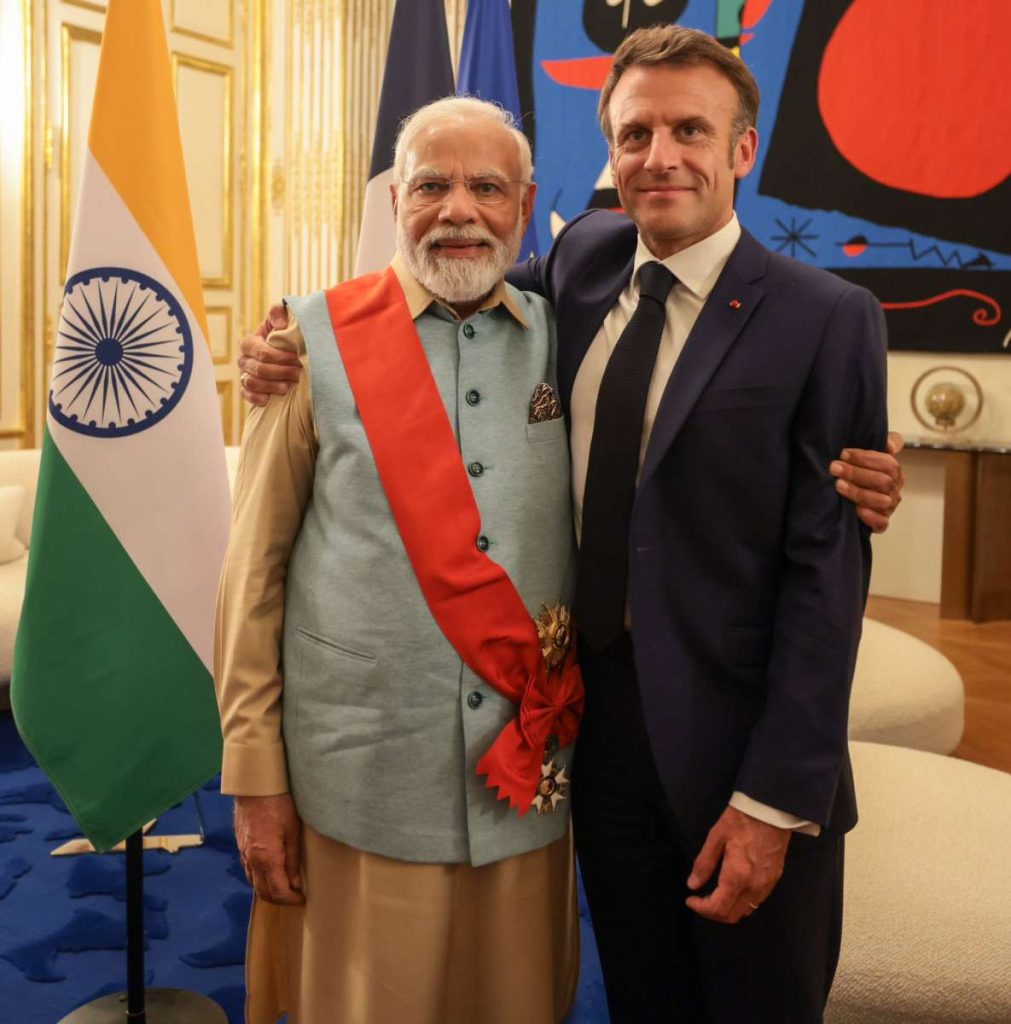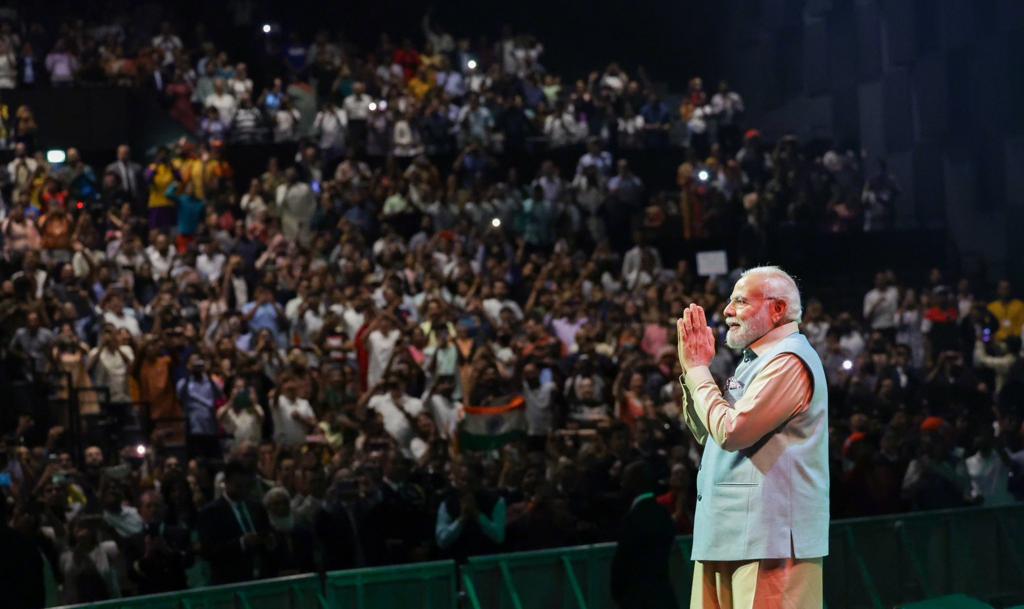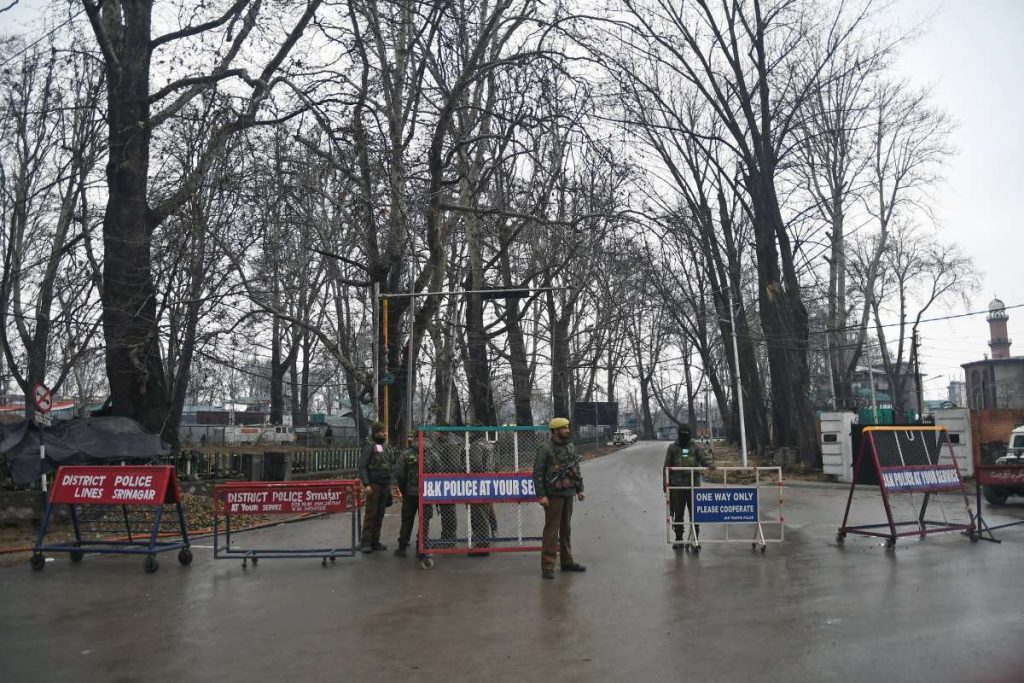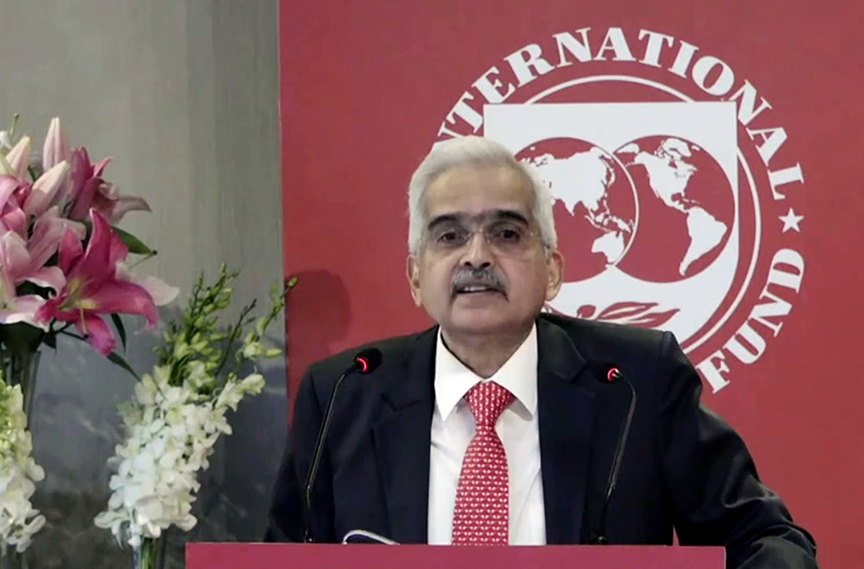Modi’s visit was an opportunity for the two nations to move into the next phase in the India-France strategic partnership and set new ambitious goals for cultural, scientific, academic, economic cooperation and wide range of interests
Prime Minister Narendra Modi has been conferred the Grand Cross of the Legion of Honour, France’s highest award by French President Emmanuel Macron. Modi thanked President Macron for this singular honour on behalf of the people of India.
The award ceremony took place at the Elysee Palace in Paris. India’s Ministry of External Affairs (MEA) spokesperson Arindam Bagchi tweeted photographs from the award ceremony that took place at the Elysee Palace here, saying “A warm gesture embodying the spirit of partnership. PM
@narendramodi conferred with the Grand Cross of the Legion of Honour, the highest award in France by President @EmmanuelMacron”.
Earlier, the French President and First Lady Brigitte Macron hosted a private dinner for Modi at the Elysee Palace. On Thursday evening, PM Modi addressed the Indian diaspora in Paris and announced an agreement for the use of the Unified Payment Interface (UPI) in France, opening a huge new market for Indian innovation in cashless instant payment.

“In France, an agreement has been made for the use of India’s UPI. It will be started from the Eiffel Tower in the coming days, and now Indian tourists will be able to make payments in rupees, through UPI, in Eiffel Tower,” the prime minister said.
Prime Minister Modi addressed the Indian community at La Seine Musicale in Paris.
During his address, he highlighted the multi-faceted India-France Strategic Partnership, which is celebrating its 25th anniversary. In a significant move, the Indian Prime Minister announced that Indian students pursuing master’s degree in France will be granted an extended five years of post-study visa. Earlier Indian students were given two-year work visas.
Prime Minister also announced the opening of a new consulate in Marseille, France. He highlighted the contribution of the Indian community in France, which form a strong foundation of the India-France partnership.
Modi also met Elisabeth Borne, Prime Minister of France on July 13, 2023. The leaders discussed furthering cooperation in various areas such as economics and trade, energy, environment, education, mobility, railways, digital public infrastructure, museology and people-to-people ties. Both sides reiterated their desire to further deepen the multifaceted cooperation between India and France.
Modi’s visit was an opportunity for the two nations to move into the next phase in the India-France strategic partnership and set new ambitious goals for cultural, scientific, academic, and economic cooperation and a wide range of interests.
India and France have a similar concept of strategic autonomy and the two are attempting to create a military-industrial complex of co-development and co-production of defence items. From 2018 to 2022, France emerged as India’s second largest arms supplier, accounting for 29 per cent of imports, according to the Stockholm International Peace Research Institute. The two countries are also focusing on working to keep the Indian Ocean Region stable.







